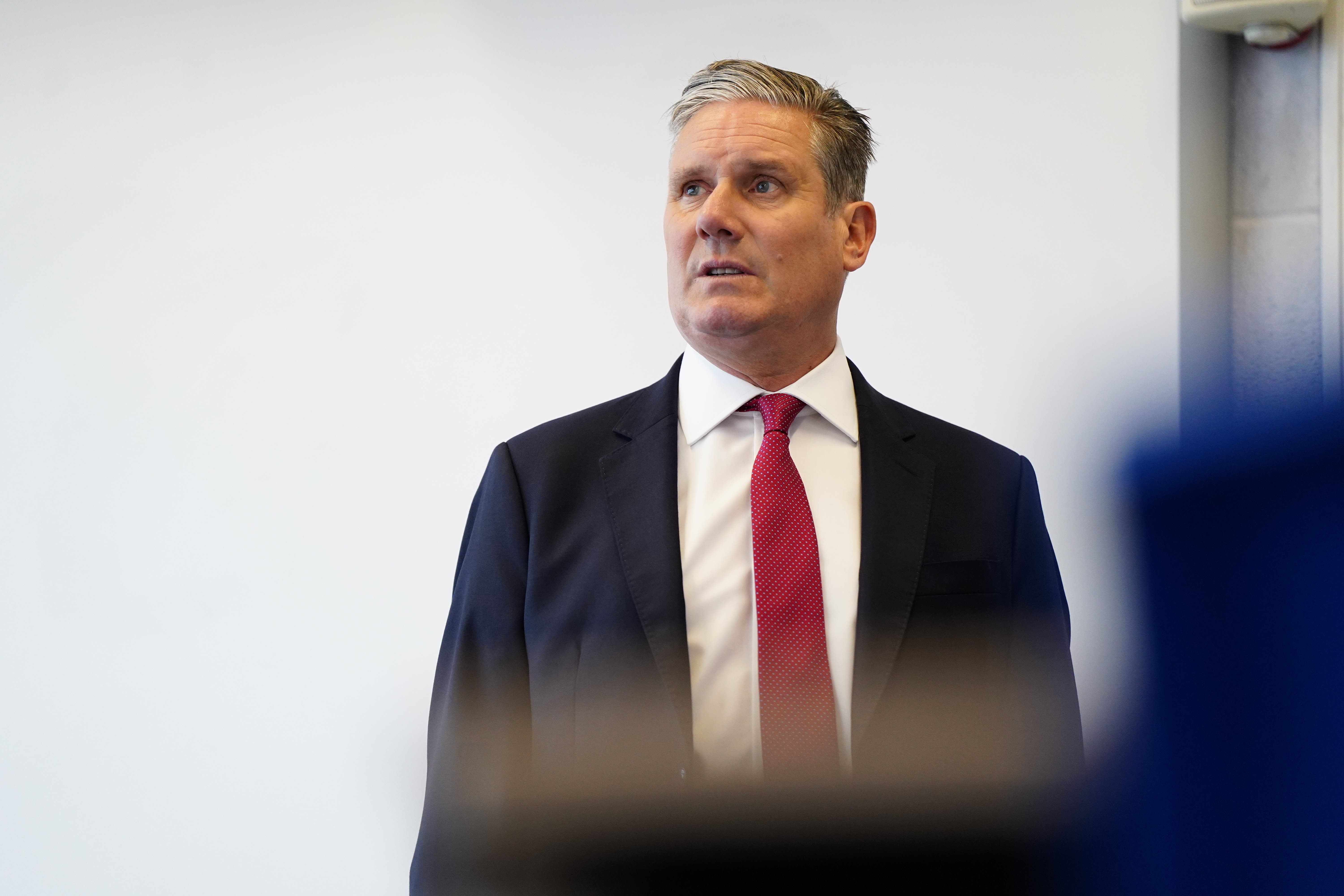Taxing private school fees could backfire on Starmer – and it’s a gift for Tory toffs
The danger for the Labour leader is that it looks like a tax on aspiration, warns John Rentoul. Which is not a mistake that Tony Blair would have made...


The next election will be a test of Blairism. Tony Blair would never have put VAT on school fees, and he would never have said, as Keir Starmer did last month: “My political project is to return Labour to the service of working people and working-class communities.”
Blair always tried to make Labour’s appeal universal, even if it ended up in such weird formulations as “the Labour government today is not the political arm of anyone other than the British people”, as he put it in his 1996 party conference speech.
The only time he showed the slightest trace of class politics was when he said on a BBC Question Time special in the 2001 election campaign that “since you’re a property developer maybe you can afford it” when someone in the audience who described himself as a property developer accused him of intending to put up taxes.
One of the ways in which Starmer is not a Blairite is in his class politics. He recently adopted a new slogan of promising to break the “class ceiling”. This seems a worthy ambition, of removing the barriers to social mobility for working-class people, but it also divides the country into classes and could imply a zero-sum game in which Labour wants the working class to succeed at the expense of the middle class.
The plan to charge VAT on school fees could send a similar message. Freddie Sayers, the editor-in-chief of the comment website UnHerd, said on Tuesday: “I don’t think Labour have properly realised the political risk of this, nor the Tories the political opportunity.”
His argument was that about 7 per cent of children go to private school, which means that about 1 million parents could be affected. “Many of them are thinking of voting Labour,” said Sayers. “This is an easy reason not to.”
I suspect that the numbers who might change their vote as a direct result of having to pay higher fees are quite small, but that there is a broader, more diffuse effect. Most people tell pollsters that they would send their children to private school if they could afford it. So the danger for Starmer is that a tax on school fees looks like a tax on aspiration.
This may be why Labour is so keen to present it as “abolishing a tax break” enjoyed by private schools. The only voters who are likely to buy this line, however, are probably going to vote Labour anyway. The rest might realise that parents who go private are already paying twice, because they pay taxes for state schools that they don’t use and fees on top of that – which is why school fees are tax deductible in Germany.
Defenders of Labour’s policy point out that even Blair had an “anti-private-school” policy in his 1997 manifesto. Labour’s pledge card included the promise to abolish the assisted places scheme, a government fund to pay the fees of some pupils whose parents couldn’t afford them. But that was a much smaller policy, affecting far fewer people than a 20 per cent tax increase on all fees: there were 34,000 pupils and 355 schools in the scheme when Labour shut it down.
The other defence of Labour’s VAT rise is that the party is 17 percentage points ahead in the opinion polls, so it cannot be that unpopular. Again, that was a risk that Blair would never have taken. Labour was miles ahead in the polls when he was leader of the opposition, but he would never have used that as an excuse for sticking with a policy that might cost votes. He and the inner New Labour team had been so marked by Labour underperforming the opinion polls in the 1997 election that he was not prepared to keep any policy that might be an electoral liability.
Of course, as things turned out, Blair could have put all sorts of voter-repellent measures in the manifesto and still won handsomely. Ed Balls, who was then Gordon Brown’s adviser, said he thought Labour should fight the election promising a higher top rate of income tax on people earning £100,000 a year (the equivalent of £200,000 today). Blair told him to “wash your mouth out”, but he would still have won if he had adopted the policy.
That was not a risk Blair was prepared to take. As with school fees, the numbers directly affected may have been small, but the policy would be seen as a tax on aspiration. Besides, as Blair said to his team in relation to foreign policy: “It is worse than you think: I really do believe in it.” He did not believe in higher taxes on the rich. He actually said during the 2001 election campaign: “It’s not a burning ambition for me to make sure that David Beckham earns less money.”
Starmer and Rachel Reeves, the shadow chancellor, are not proposing broad-based tax rises for the rich, except on school fees. In that respect, and in some of the class language around it, they are taking a risk that Blair would not take. In this sense, the next election will test the thesis that Balls wanted to test in 1997: he thought Labour could win despite proposing what some voters would see as a tax on aspiration. Twenty-seven years later, we may find out who was right.






Join our commenting forum
Join thought-provoking conversations, follow other Independent readers and see their replies
Comments